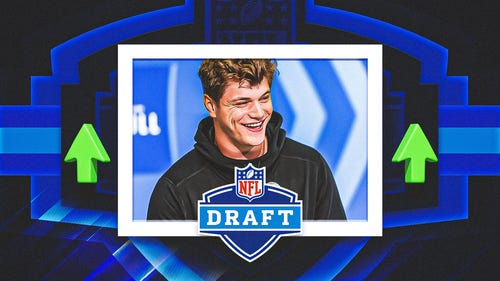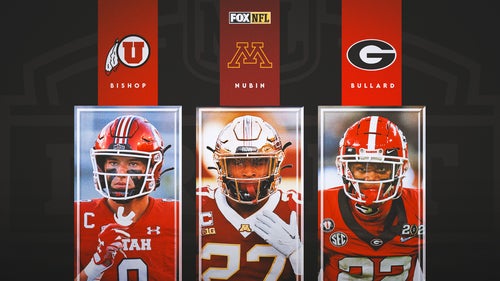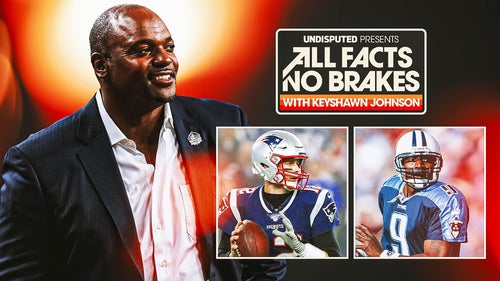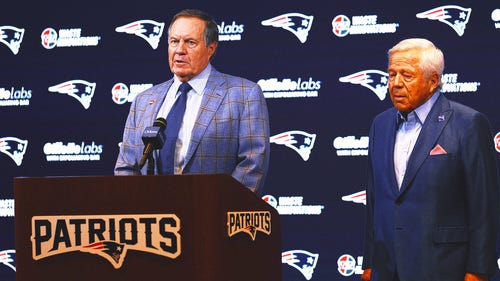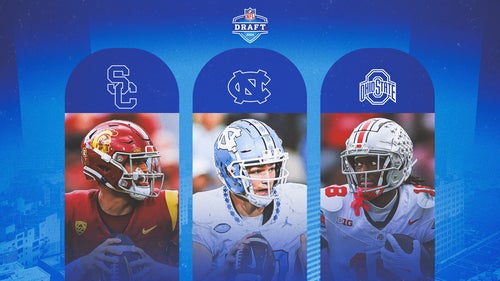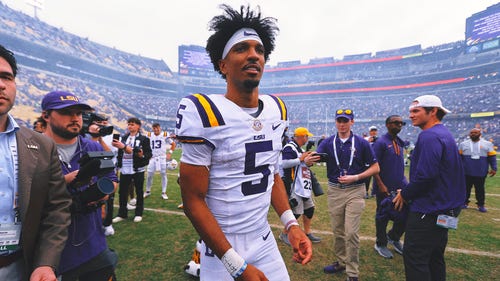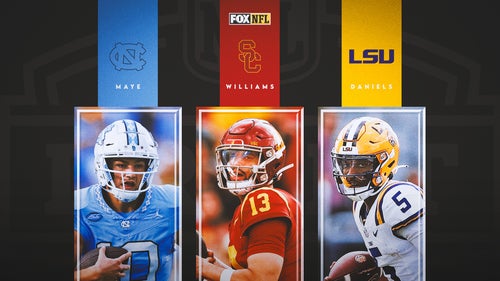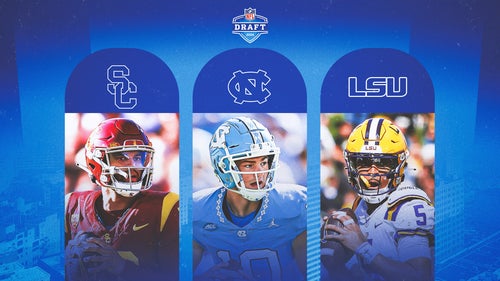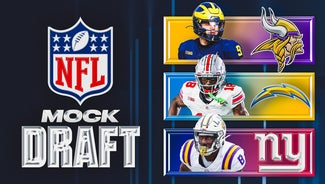
Matt Light Is Still Protecting the Blind Side

GREENVILLE, Ohio — With beads of sweat of dripping from his hairline and his thin-wired glasses fogging up, a young man toils away with a sledgehammer in July’s unforgiving midday heat. Surrounded by cornfields as far as the eye can see, he lifts the hammer above his shoulders and slams it down on a small piece of raw timber.
Thwack. Thwack. Thwack.
Exhausted, he drops his shoulders after 10 minutes of constant bashing and locks eyes with his ever-watchful teacher.
“I don’t know,” the young man says. “I might be done.”
“Are you kidding me?” the teacher barks back. “Don’t f------ quit. You made it this far.”
He adjusts his grip and unleashes 22 more thwacks, pounding the wood until a piece breaks off and falls to the dirt. Mission accomplished, he mic-drops the sledgehammer and gives his teacher a high-five. The gesture, however commonplace, says everything about the unlikely bond between Luis Matos, a 17-year-old former gang member from Worcester, Mass., and Matt Light, the former offensive lineman for the New England Patriots.
“If it weren’t for Matt Light,” says Luis’s mother, Maritza, “my son would not be alive right now. He would be dead, or he would be lost. He would have no future.”
* * *
For a decade, Matt Light protected Tom Brady’s blindside, starting 155 games and fortifying an offense that won seven division championships, four conference titles and three Super Bowls. Now he spends his days looking out for at-risk teens such as Luis, whose journey over the past four years has included running away from home, joining a gang, being arrested for illegally possessing a weapon and damaging personal property, having his older brother die from a heroine overdose and, at one point, telling Light “go f--- yourself and get out of my life.”
“Kids like Luis, sometimes the system fails them, sometime it ignores them, sometimes they just need a push,” Light says. “But they can all be saved. You can’t save them by just saying you want to help, and you can’t just throw money at the problem. To reach a kid like Luis, you need to put in the time. To effectively make a change in their life, it’s not easy. Sometimes you need to give them tough love.”
When Light retired from the NFL, in 2001, his hometown wanted to host a Matt Light Day and put his name on all the signs at the edge of town. “Matt freaked out,” his wife, Susie, says. “He said absolutely not. That’s just not him.” Light instead honored his roots by purchasing a few downtown properties (he’s a coffee house landlord) and 600 acres of farmland in Greenville, where he grew up riding tractors, hunting turkeys and fishing in the streams.
In 2008, in conjunction with the foundation he started as a player, Light launched the Vohokase Cultural Leadership Camp, which brings 16 underprivileged teenagers to his family’s compound each year to experience a country summer. Four new campers are brought into the program each year and stay in it for four years. Light and Nick Schuckman, the program’s director, call the teens a few times each month and make home visits twice a year to points all over the country. “I was tired of organizations that talk about doing things,” Light says, “and don't get down in the dirt and do it.”

For 10 days each summer, the campers play in Greenville’s dirt. They see to their chores in the morning (cleaning bathrooms, bussing tables after breakfast) and then have paintball outings, race go-karts and volunteer in the community (playing bingo at a nursing home, for example). The teens are also exposed to workplace norms. One of Light’s former high school teammates runs a local slaughterhouse, where the campers toured the meat freezer and examined carcasses. “Now you see how hard it is to run a small business?” Light said as a few boys winced at an open freezer. “But it’s important to always support those in your community.”
Light’s four children mingle among the campers; his mother and mother-in-law take off work to cook meals (like four dozen cheesy skillet eggs for breakfast). Greenville pitches in too. For the camper’s annual pizza-making challenge, the local pizzeria donates the dough and sauce while the owner serves as the judge. Each night ends with a fireside chat, where the teens are encouraged to speak openly and honestly about their lives.
“Some of this stuff is stuff we’d never be exposed to at home,” says William Slate, a third-year camper from Louisiana. “These people aren’t really people I’d get a chance to connect with.”
Adds Dylan Pope, a second-year camper from Ohio, “I think that’s why we all grow up so much while we’re here.”
Four years ago, the Light Foundation brought in a group of freshmen from Worcester, Mass. Among them was a shy kid with a big smile who longed to be a part of … something.
* * *
Forty miles west of Boston, Worcester is at first blush an inviting redbrick city, New England to its core. It’s home to several colleges and universities, several hospitals and Polar Beverages, which has an inflatable polar bear sitting on a warehouse rooftop and waving to cars on I-290. But there’s also a hardscrabble side. A 2013 cover story in Worcester Magazine quoted the police chief saying there were 16 known gangs in the city of 180,000. National statistics suggest most members join before they turn 15.
“It used to be an OK place to raise a family, with many hard-working people,” says Luis’s mother, Martiza, who left Puerto Rico in 1986 as a teenager and settled here with her family. “But it changed. There became drugs and gangs.”
When the local Boys & Girls Club referred Luis to Matt Light’s foundation in January 2013, Maritza was ecstatic. “It felt like someone was looking after my boy,” she says.
Luis loved his first summer in Greenville. “I was doing fun things I never thought I’d do in my life, and I met some cool people,” he says. When they volunteered at the local church festival, the counselors received more compliments about him than any other camper.
During his second summer in Greenville, the counselors noticed some disengagement. Luis didn’t want to participate in activities, and he mouthed off to counselors. By his third year in the program, Luis’s grades were slipping. He was kicked off his school’s basketball team for acting out several times; school officials also found a knife in his backpack. He was sent to two different alternative schools. When Light and Schuckman visited that winter, Light asked, “What’s going on, man? You’re different.”
“At that point it was clear. He was involved with a gang,” Schuckman says. “We only get them for 10 days in the summer, then try to be there for them throughout the year. But the gangs—they do the same thing we try to do, which is make you feel like you’re part of their family. The problem is, they have exposure to him all year long.”
* * *
During Luis’s 2015 summer trip to Greenville, Light had several long discussions with the troubled teen. They went on long walks together, but Luis either wouldn’t listen or kept talking back. So Light toughened his approach.
“You’re going to waste your life away,” he said.
Luis stared at Light and told him, “Go f---yourself.”
Within 24 hours of returning home at the end of camp, Luis snuck out of the house via a third-story window. For 30 days he lived on the streets, sleeping at friends’ houses, at houses of fellow gang members, or in unlocked cars parked on the street. Picked up by police along with another teen, Luis was arrested on a weapons charge. The other teenager, who was let go, ended up getting shot later that day.
“The minute I find out about this, I’m calling every place in the country that takes kids like this who have screwed up,” says Light, who was in contact with Luis’s case officer from the department of youth services. “Let me fulfill my commitment to this kid,” Light pleaded.
Two days before Luis’s court hearing, Maritza awoke to a heartbreaking call. Her other son, Reynaldo, had been found dead on a park bench in Worcester Commons. He overdosed on heroine. He was 24.
The judge allowed Luis to leave jail with an escort for the viewing. He and his mother cried together. Luis was inconsolable. “Why did you leave me?” he wailed. “Who is going to protect me now?”
On the day of Luis’ sentencing for damaging personal property and a weapons charge, Light arrived in court. “You should’ve seen the judge’s face when he walked in,” Maritza says. “She was talking to the D.A. and then she was star struck. She said, ‘I’ve never had this big a celebrity in my courtroom.’ ”
At least one person in the courtroom wasn’t impressed.
“You should’ve seen the glare Luis gave me,” Light says. “He was like, ‘Oh s----.”
“I wanted him to go away,” Luis says. “I didn’t want him in my life trying to make decisions for me.”
Light spoke to the judge and explained how he’d found a diversion program in Storm Ridge, Utah, that would accept Luis and put him to work on a ranch in a yearlong program designed to get kids back on track. According to Light, the judge said, I like you, and I like that there is an organization doing this. I am willing to put him in your custody, but he has to agree to it. If not, I’m giving him a year-and-a-half sentence.
“I ain’t going to Utah,” Luis told Light as they huddled privately. “I ain’t going somewhere where I can’t see my girl. I’m not doing what you said.”
Light nearly shouted: “This ain’t bush leagues, son. You’re not going to see your girl. You screwed up and you are going to need to serve time in jail.”
Luis fell silent.
The judge told Luis, You have somebody going to bat for you, but this is on you. Let the record show it is you who has to make the decision.
Maritza sobbed in the back of the courtroom. “I had just lost one son,” she says, “and I knew if Luis didn’t listen to Matt Light, I would probably lose another.”
“It was probably 10 minutes before he spoke,” Light says. “But it felt like forever.”
Luis finally nodded. He was on a plane to Utah the next day.
* * *

Luis lived in Utah from September 2015 to June 2016 and earned his high school diploma a year ahead of schedule. When Light and Schuckman visited last winter, Luis showed them how he was able to ride horses and corral cows. He’d also begun lifting weights and decided on a career path: He wanted to work with the elderly.
Light and Shuckman saw that he missed his mother, so they flew Maritza out as a surprise. Luis was reduced to tears when he saw her. “The amount of money they put [up for] my son to be out there, it’s like paying my rent, my bills, my car insurance and then another $1,000 on top of that a month,” says Maritza, who works as a phlebotomist in Worcester-area hospitals. “I am so speechless for that. But they were there for my son. What do I say to the people who have given my son life?”
After the Storm Ridge program, Luis flew straight to Greenville for his last summer as a camper. One day, the campers were tasked with using a sledgehammer to pound raw pieces of wood through a small hole and transforming them into pegs that would be used in a new fence.
Dripping with sweat, Luis looked up at Light and asked, “Can’t I be done?”
“Not until you finish,” Light told his ultimate work-in-progress.
Luis thwacked the sledgehammer a few more times until an unrefined piece of wood had been transformed into a smooth peg. As he dropped it in a nearby bucket, he noticed one of the younger campers struggling with the hammer.
“Here,” Luis said, reaching out his hand. “Let me show you how.”
Question? Comment? Story idea? Let us know at talkback@themmqb.com
This article originally appeared on







































































































































